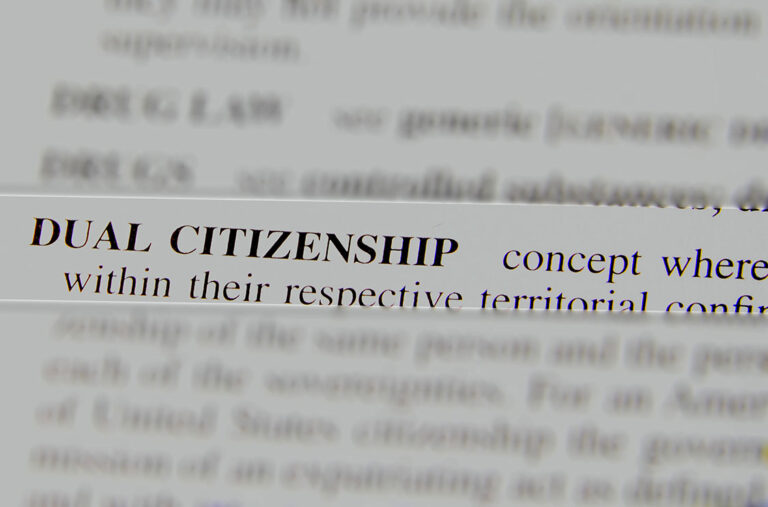Your move from the USA to Germany will bring so many fantastic opportunities. After all, there are a tremendous number of benefits to living in Germany.
But while there’s so much excitement and adventure, there are also practical considerations and cultural changes. Those might add up to create some anxiety. Never fear—we have just the guide for you.
This article helps you prepare for your move and adapt to German life.
German Visa and Residence Permits
US citizens can visit Germany visa-free for 90 days. But for longer stays—especially for work, study, or reuniting a family—you’ll be required to get a national visa (residence permit).
Good news: Americans can enter Germany first and then apply locally at the Ausländerbehörde (Immigration Office). That makes the process much, much easier.
Below is a quick-reference table to orient you to your visa options:
| Visa Type | Purpose | Requirements |
| Employment/EU Blue Card | German job offer | Degree, salary ~€48,300+ |
| Job-Seeker Visa | 6-month job hunt | Proof of funds, qualifications |
| Student Visa | University study | Admission letter, financial means |
| Family Reunion | Join family/spouse | Proof of relationship, basic German |
| Freelancer | Self-employed/business | Viable business plan, financial means |
Explaining Your German Visa Options:
- Employment/EU Blue Card: This is for drawing in highly skilled professionals, so it requires a German job offer, a university degree, and a minimum annual salary (€48,300 in 2025). On top of giving you a residence permit, it also offers you to bring your immediate family
. - Job-Seeker Visa: Allows a six-month job search, but you have to prove you have the funds to live without working for that time. Once you get a job, it’s easy to convert this visa to a work permit
. - Student Visa: This requires an admission letter and proof you can afford your stay. It also allows an expansive 18-month job search period after you graduate. If you go this route, most universities have resources to help you go through these steps.
- Family Reunion Visa: Let’s say you’re moving to Germany to live with a spouse of close family member who is a German resident. In that case, you need to have proof of the relationship and some basic German language skills.
- Freelancer/Self-Employment Visa: This route is perfect for artists, freelancers, and digital nomads. But you need to have proof that your business can actually pay for your stay.
Cost of Living in Germany vs. the US
We’ve covered this topic in depth about the cost of living in Germany. Still, it’s worth briefly covering the cost of living here to prepare yourself.
Monthly expenses vary significantly:
- Single person: €1,800–€2,500 average
- Family of four: €3,000–€4,000 average.
Let’s break down those monthly costs in a bit more detail:
| Item | Munich | Berlin | Smaller Cities |
| Rent (1-bed apt) | €1,400 | €1,200 | €600–€700 |
| Groceries | €200–€300 | €200–€300 | €150–€250 |
| Utilities (electric, heat, water) | €150–€300 | €150–€300 | €150–€250 |
| Public Transit Passes | €60–€100 | €49–€100 | €50–€60 |
Healthcare in Germany
German law mandates health insurance for everyone. What this often looks like is public insurance, which is taken directly out of your paycheck (14.6% of your income, split with employer). You can apply for public health insurance once you are in the country. In fact, if you work for a German employer and make less than €73,800 a year, you’ll be automatically enrolled.
But if you are self-employed or looking for a job, you’ll need to apply for public health insurance on your own.
Private insurance offers additional perks but costs more (€250–€800/month). Some of these have a lot more services catering to English-speaking expats, so those with the money sometimes think it is worth the premium pricetag.
Either way you go, you’ll find German healthcare is of the very highest caliber. And even when you select a private option, it’s still much cheaper than in the US.
Job Market in Germany
Germany is the largest economy in Europe. And that means there are always companies actively seeking skilled workers. The EU Blue Card simplifies obtaining a work visa, particularly for professionals.
High demand sectors include: IT and software development, engineering (mechanical, electrical, civil), scientific research, finance and banking, education (including English teaching), and medical fields (doctors and nurses).
Obviously, German language skills are a massive leg up, but there are English-speaking roles in major cities, especially Berlin and Munich. These cities are globally connected, so your ability to interface with American companies could be a competitive edge.
Once you land a job, be prepared for some cultural adjustments in the workplace. Germans are known for punctuality, thoroughness, and direct communication (see Cultural Differences below). The work-life balance is generally good – full-time workers typically have ~30 days of paid vacation and work around 38–40 hours per week, with overtime usually compensated or tracked. In general, there are far more employee protections in Germany than the US, which many expats enjoy experiencing!
Housing and Accommodation in Germany
Renting dominates housing in Germany (about half of the people rent), and cities like Munich and Berlin have very competitive markets.
Rental applications will often need your passport, proof of income, and a credit check/SCHUFA. Along with that, you’ll need to have quite a bit of money on hand. Deposits typically equal two months’ rent.
There are also some amenity differences that you’ll need to get used to. Unfurnished apartments often lack kitchens or closets, so check listings carefully (EBK means kitchen included).
Don’t Forget Registration (Anmeldung)
Once you’ve found your new place, you need to register your address (Anmeldung) at the Bürgeramt within two weeks of moving—this is required for bank accounts and services. Speaking of which…
Banking and Money
Opening a German bank account quickly is essential if you’d like to do things like spend and earn money easily (we find that’s usually a top priority for clients).
Online banks like N26 offer simple, app-based banking in English. Traditional banks (Deutsche Bank, Commerzbank) provide in-person services but often require more documentation. Germans frequently pay via direct transfers or debit (Girocard). Cash remains very common, much more so than the US, so have euros on you just in case.
German Cultural Adjustments
A move to Germany takes you to a new country, a new continent, and a new culture. It’s worth taking some time to appreciate the changes that will bring about in your life.
Germans famously value direct communication, punctuality, and privacy. They may seem reserved initially but are friendly and reliable friends once trust is built.
Sundays are rest days—stores close, and quiet hours are respected (10 pm–7 am).
Welcome to Your New German Life!
Life in Germany is wonderful. You’ll be so happy you overcame the hurdles and persevered through the headaches.
And it’s likely that, once you’re here, you’ll want to become a full citizen. If that sounds like you, check out our full guide on becoming a dual citizen





